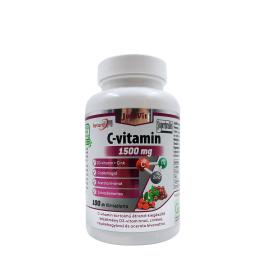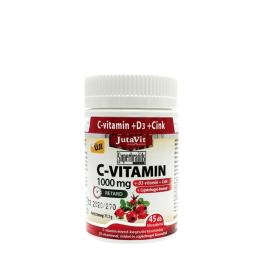Vitamin C, also known as L-ascorbic acid, is a compound essential for life. It has antioxidant (anti-free radical) activity, is involved in immune function and in the production of many compounds (including collagen, carnitine and neurotransmitters). Due to its antioxidant activity, it is believed by both doctors and patients to help fight many chronic diseases.
Its role in the production of collagen makes it a popular ingredient in joint protectors.
It is a commonly used remedy for colds, flus and infections.
The most common symptoms of vitamin C deficiency are 'keratosis pillaris', where small rashes appear on the skin, dry skin, joint problems (due to lack of collagen replenishment), slow wound healing, and frequent illnesses.
People who are at increased risk of vitamin C deficiency include:
- The elderly
- People with conditions such as: alcoholism, anorexia, tumours, inflammatory bowel disease, reflux, kidney failure.
- People who have undergone kidney transplantation
- People with food allergies
- Smokers
- Medications: aspirin, indomethacin, tetracycline and corticosteroids.
Foods rich in vitamin C:
- Fruits: citrus fruits (like oranges, grapefruit), kiwi, strawberries, cantaloupe
- Vegetables: red and green peppers, broccoli, tomatoes
Recommended daily intake of vitamin C (RDI):
- For men: 95 mg
- For women: 75 mg
- Children: 15-75 mg (depending on age).
The tolerable upper limit is:
- Children aged 1-3 years: 400 mg
- Children 4-8 years: 650 mg
- Children aged 9-13: 1,200 mg
- 14-18 year old teenagers: 1,800 mg
- Adults: 2,000 mg
It is important not to exceed the upper tolerable limit (2000% RDI) in the long term to avoid side effects.








































